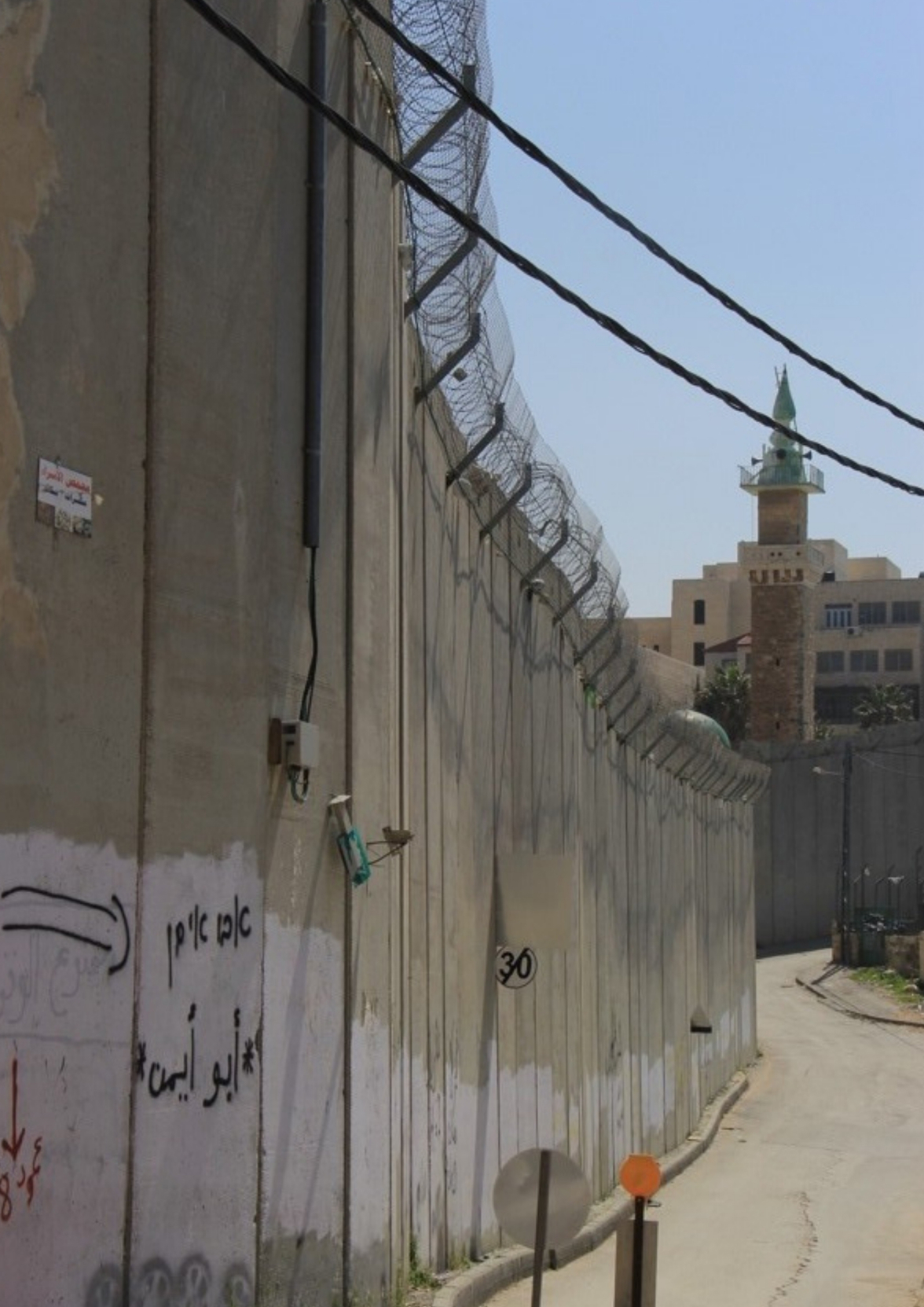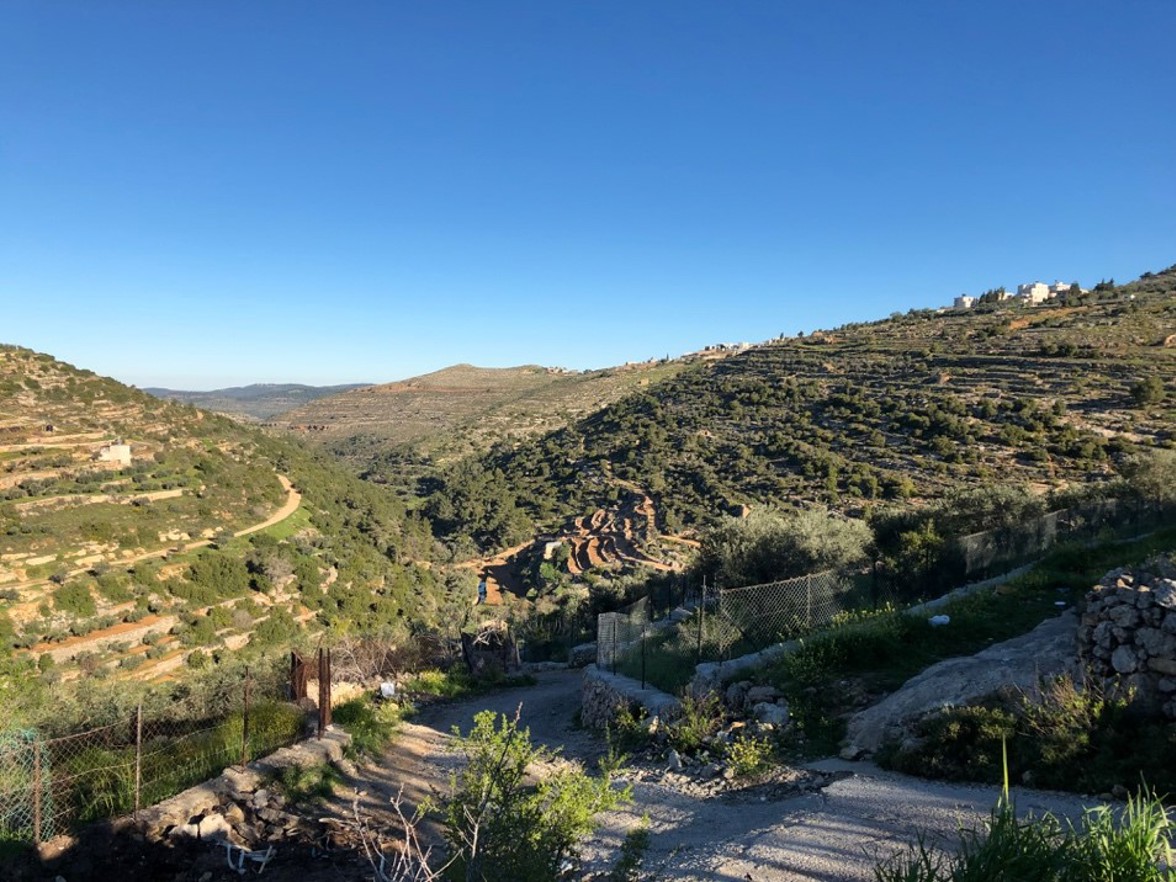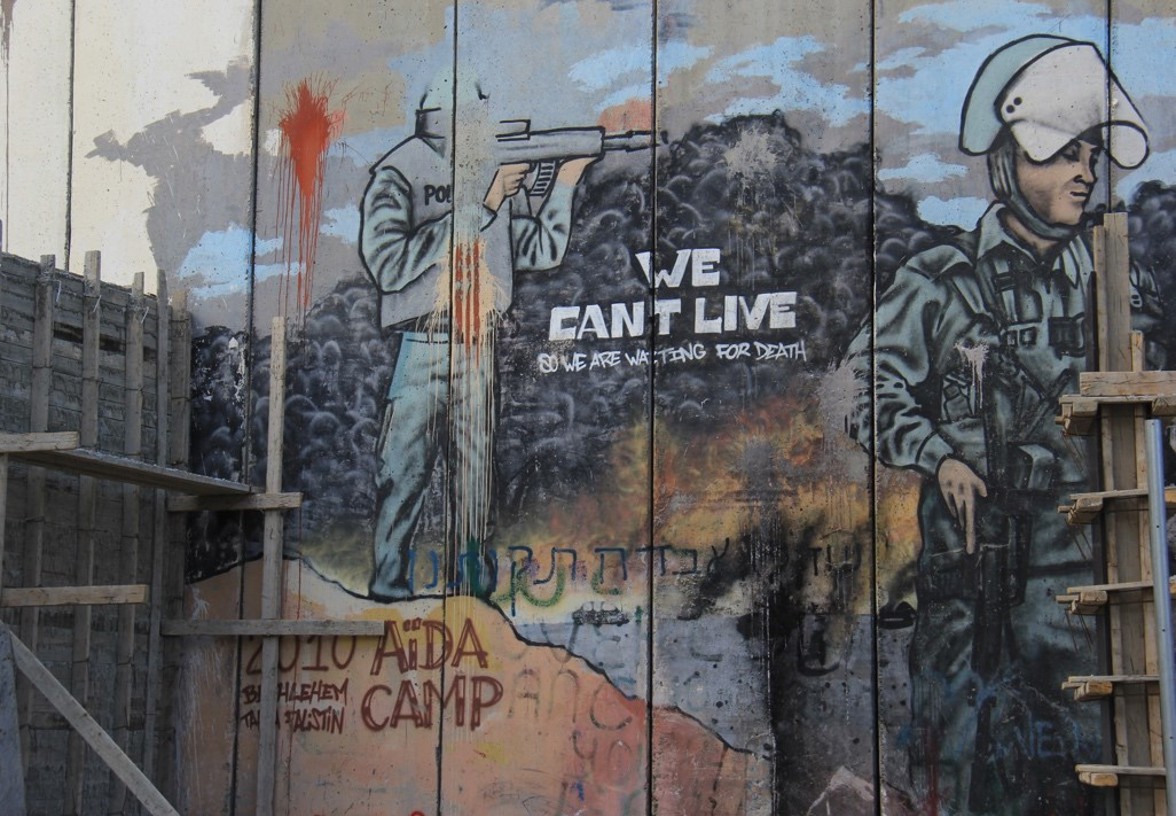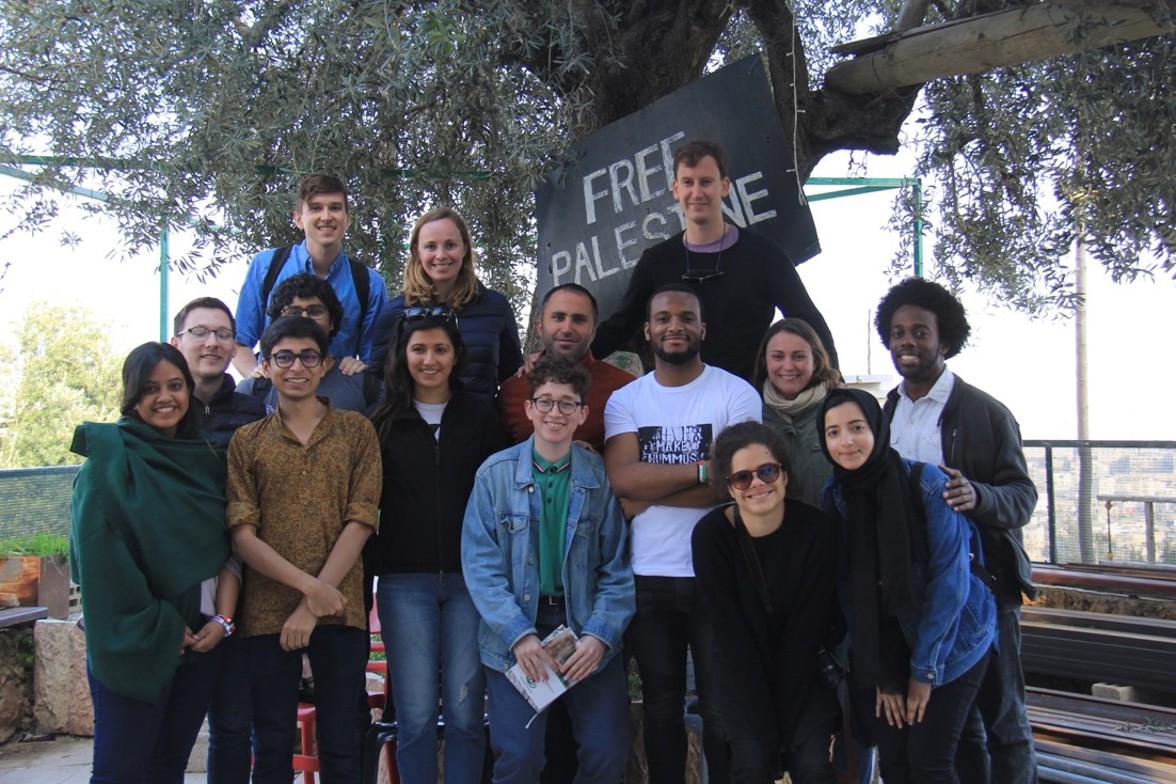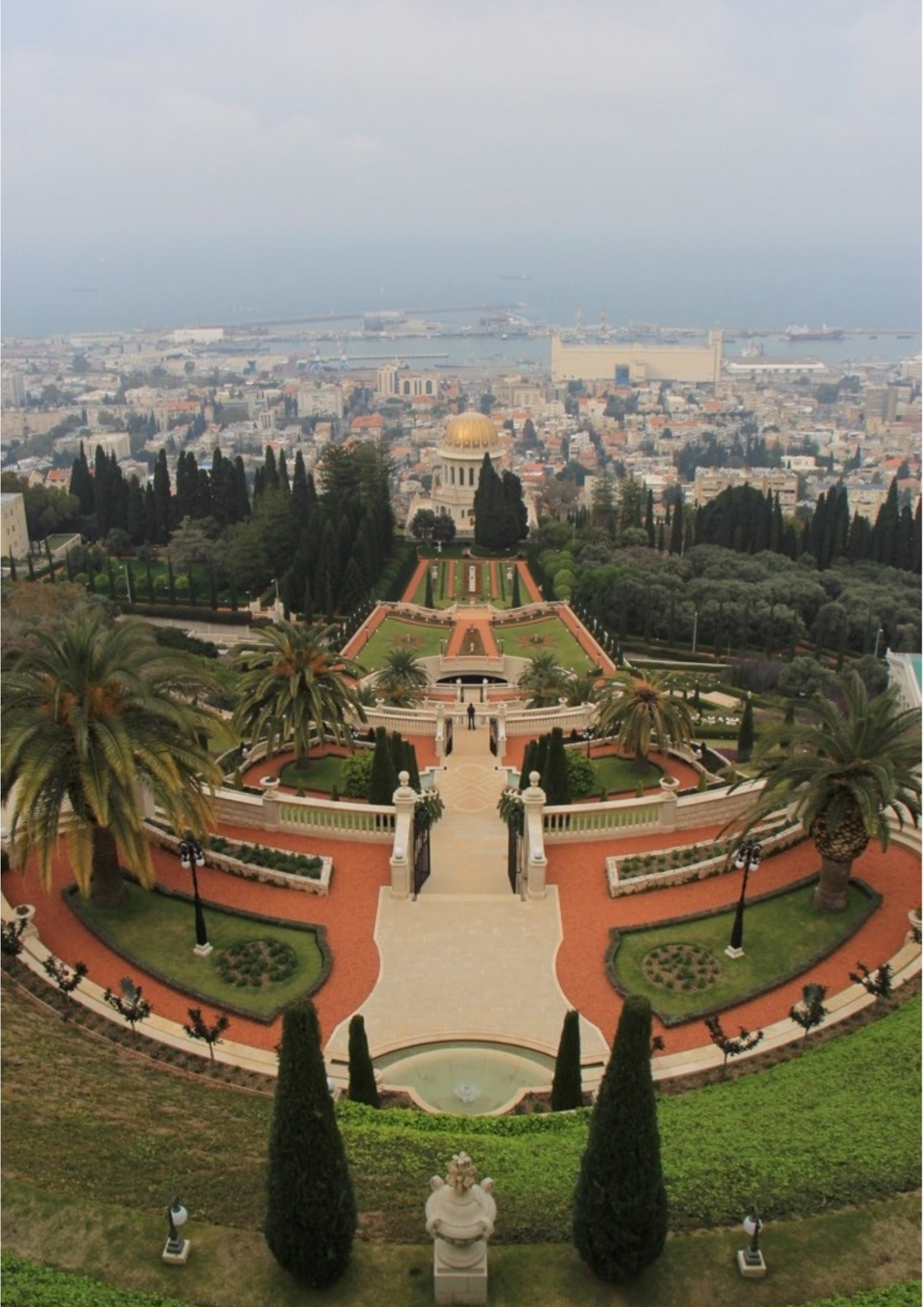The second-ever cohort of Rhodes Eden Palestine Fellows arrived in Jerusalem on 17 March 2019 to begin our week-long trip through Israel and Palestine. As part of our effort to translate this Fellowship into meaningful action and understanding on behalf of the people of Palestine, we have documented our experiences with a blog post that outlines each day of our journey, conveying what we have seen, heard, learned and shared to all of you.
Day 0: Jerusalem
We gathered in our hotel that evening for the first time as a full class of Fellows and discussed, among other things, our plans for these posts, our itinerary for the trip, our expectations, our excitement, and our worries. The Fellows expressed a fear of not being able to transform this experience into tangible action, of acting as voyeurs of suffering, of not pushing themselves to learn and experience the uncomfortable, of our own internal discussions turning fractious and causing rifts, about safety, Islamophobia, and ignorance. We expressed our excitement for hearing the voices of Palestinians on their own terms, for learning from activists and people on the ground, for productive conversation, for new friendships, and for bearing witness.
Day 1: Jerusalem
We all piled into a minibus and went to visit the Jerusalem-based non-profit B’Tselem—The Israeli Information Center for Human Rights in the Occupied Territories. With a staff of around 40 people, mostly Jewish Israelis, the organisation documents and publicises Israeli violations of Palestinian human rights with the aim of disarming the apparatuses that enable the occupation.
The Center director, Hagai El-Ad, began by problematising the commonly used phrase “it’s complicated” to describe the Israeli occupation. He challenged its use; recognising injustice is actually not that complicated, especially when it's so direct, visible, and glaring. He explained that for him, as an Israeli national, coming to terms with the reality of the injustices around him “there was no aha moment—it was a process. You come to realize that the things you grow up seeing and how things were, were not necessarily how they were supposed to be".
In the afternoon, we were led on a political tour of Jerusalem by a community organiser at Grassroots Jerusalem. We saw several seemingly ordinary parts of the city that all carried vivid anecdotes about the advancement of and struggle against occupation. We also visited what is widely known as the apartheid wall (see photo), where we spotted used IDF tear gas canisters. Our guide preferred to call the wall an annexation wall, given how it cuts through neighbourhoods and villages, often not along internationally-recognized borders, dividing communities and separating Palestinians from their land.
Later in the day we made our way to the home of Nora Sab Laban, a Palestinian woman who is being evicted from her family’s home. Nora spoke about how so many of her Palestinian neighbors have been evicted and forcibly removed from her neighborhood to make room for Jewish settlers, and how this is a near universal experience in occupied East Jerusalem. Her settler neighbors do not talk to her, and she remarked: “What kind of life is it to not greet your neighbors? It is not our culture.” Even as settlers have made unsubstantiated claims to ownership of her home, she has been relentlessly fighting legal battles for decades to prove her right to remain. Her hospitality, willingness to be vulnerable, and personal story provided a moving testament to the everyday impact of occupation.


